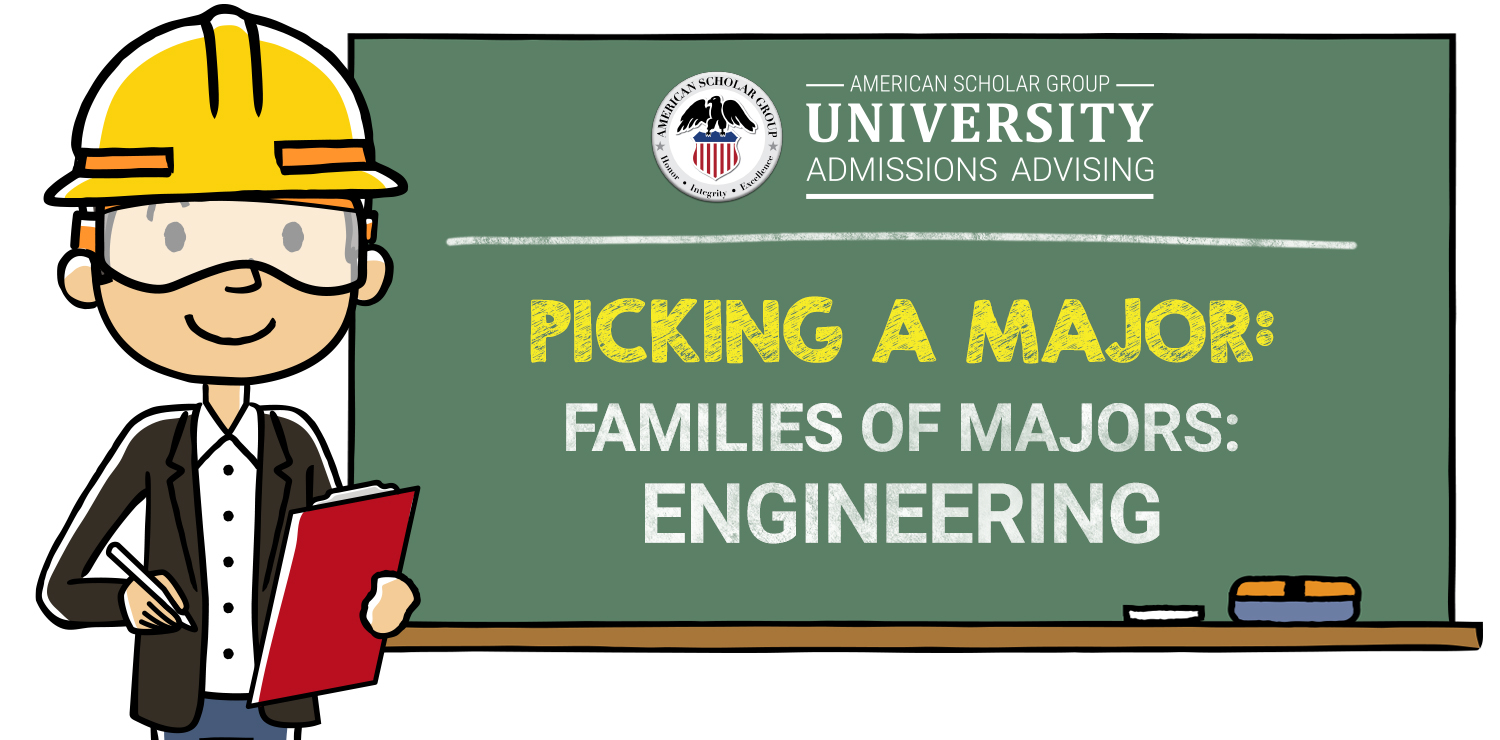
A primary part of the Advising Program at the American Scholar involves helping students choose potential majors for study at U.S. universities. It’s an important question for guiding how you enrich your 5 Factors of U.S. University Admissions.
To appreciate the majors available for study, we will explore some common families of majors. These families are groupings of majors by common themes or methodologies that are closely related to each other.
Today we are looking at the engineering.
What is the Engineering Family?
Engineering uses knowledge from science about the structures & forces of the universe, along with the aesthetics of style & cultural significance of the humanities. Engineers combine these with the needs of businesses and governmental agencies to design & build items such as smart phones, chemical plants, bridges, & digital effects in movies
They apply existing knowledge to create or improve systems, structures, and devices to fit their client’s needs and budget.
There are many types of engineering specializations but in the United States the main majors are usually:
- Chemical Engineering
- Biomedical Engineering
- Civil Engineering
- Structural Engineering (sometimes combined with Civil Engineering)
- Industrial Engineering
- Computer Engineering
- Electrical Engineering (sometimes combined with Computer Engineering)
- Mechanical Engineering
- Aerospace Engineering (sometimes combined with Mechanical Engineering)

While there are some common engineering majors that cover large areas of design and development, there are also many specialized programs for narrower area of focus that have high demand from certain industries or governments, such as:
- Environmental engineering (often linked to civil engineering)
- Nuclear engineering (sometimes linked to mechanical engineering)
- Mechatronics engineering
You can find programs in the humanities or the sciences in at both four-year colleges and universities. Engineering programs in America are usually found at universities, which are larger than colleges.
In fact, universities are made up of multiple colleges, including those with names like “the College of Engineering”. Once you know which type of engineering you wish to study it is easy to find the best schools matching your focus and qualifications.
Engineering students tend to take the same schedule as many natural science students their first semester at university, except they will also have a course in basic principles of engineering.
Specialized courses in their particular engineering major start often start in their second semester or second year.
Engineering majors take much math and science so doing well in those areas is crucial. Yet they will be working with teams of people on projects as well as clients communicating requirements and goals.
Hobbies, courses, and internships related to the following areas can be highly valuable:
- Effective writing, speaking, and interpersonal communication
- Practicing creativity and imagination (which can lead to better design ideas)
- Understanding routine practices of businesses and governments
Next stop on our tour of the families of majors is a review of Business



